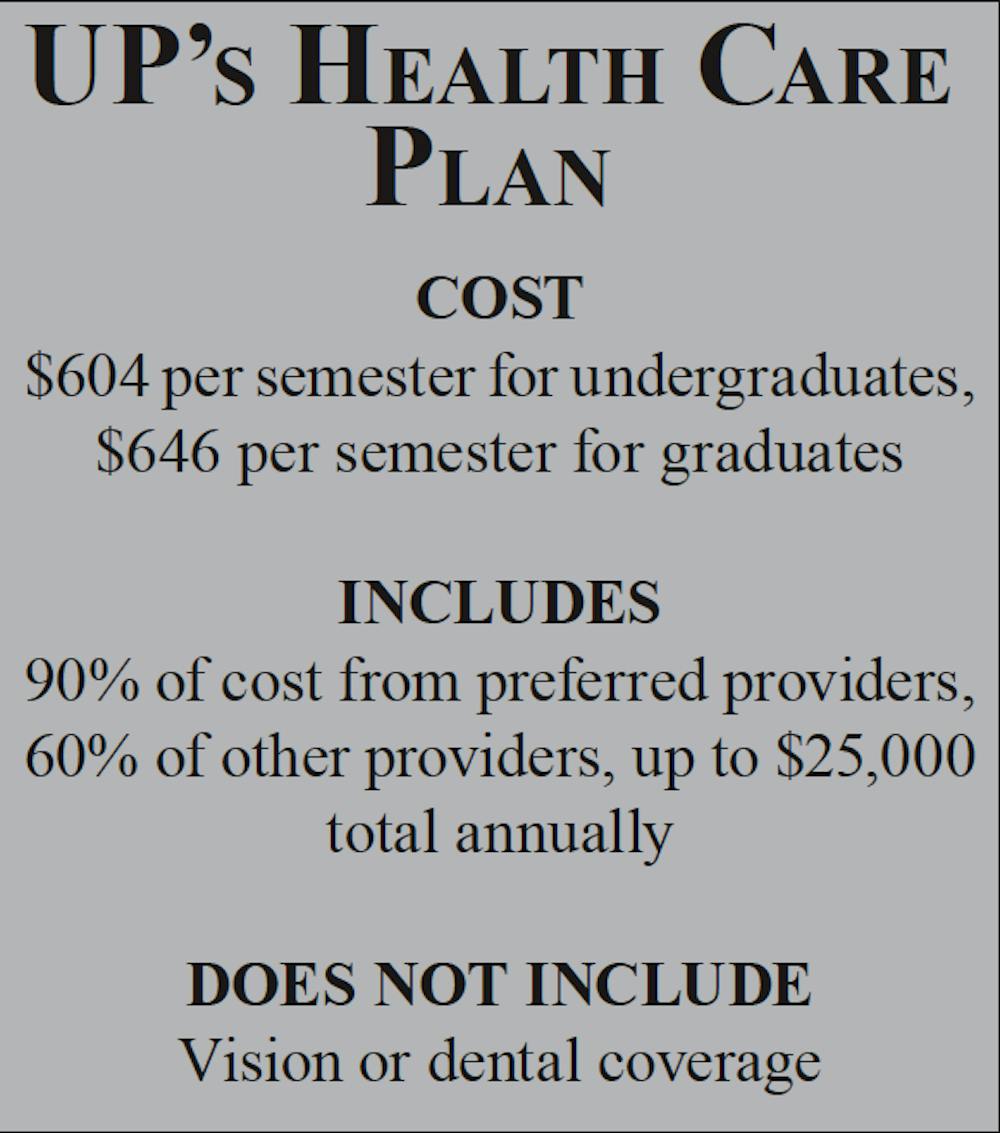With 350 students signed up, the University health care plan is a rarely used insurance option
By Natalie Wheeler, Staff Writer -- wheelern12@up.edu
PPO? HMO? RC?
What does it all mean?
Delving into the world of health insurance plans can be complicated for students. As those school bills come in, many students have decided to waive the university's health insurance and stick to their current plans.
According to Paul Myers, director of the Health Center, only about 10 to 14 percent of students accept the university's health care plan.
"We have about 350 students on (the health plan)," Myers said. "Most students continue with their parents' plans."
The University requires that all students have health insurance. Myers said that decision was made in an effort to follow the American College Health Association (ACHA) guidelines. ACHA also recommends that universities have their own health plans to offer if possible.
"The ACHA has guidelines on what student health centers should advocate for," Myers said. "(The University plan) was a vehicle to make sure more people were insured."
Junior Jane Strugatsky is one of the minority of UP students who use the University health insurance.
"My insurance that I was on before ends when you're 19," Strugatsky said, "and my mom and dad didn't have coverage at that time."
Strugatsky has only had to make use of her health plan once, for a kidney infection this summer. Although the plan doesn't cover everything, she's glad she has it.
"I think it's minimal – there's no vision and dental – but it was at least there when I needed it this summer," Strugatsky said.
Myers said there are several reasons why students might accept the university's health insurance. For example, they could have outgrown their parents' coverage or be outside of coverage for their local plan area.
"Some students even throw it on as more coverage or to plug gaps in insurance," Myers said.
However, with President Obama's health care reform underway, some of those students may not need the university's health plan anymore. The law will now require parents' insurers to continue coverage of their children until age 26, unless an employer will cover it for them.
"A lot of the question marks are about if the students will stay with their parents until they reach 26, and about what that will do to the pool of students who get the university's health care," Myers said.
Myers has heard of universities sustaining health plans with a pool of students as low as 150 but said that the more students on the plan, the cheaper the premiums. Colleges are looking for ways to lessen costs for students.
"There are efforts to have a private Oregon consortium of colleges to lower costs," Myers said.
Full-time undergraduates have to pay $604 for a semester of UP's health insurance. Most students, like sophomores Aubrey Wilmes, plan to steer clear of the plan all four years.
"We already had our own insurance," Wilmes said, "So there was no reason to be paying $600."
Sophomore Taylor Cothran agrees.
"My parents already have a good insurance plan," she said.
Although new laws would safeguard her until age 26, Cothran plans to stop using her parents' insurance soon after graduating.
"Once I graduate and have a job that offers health insurance, I'll go on that plan," Cothran said.
No matter where the health insurance comes from, Myers hopes that students realize its importance.
"I urge people to get coverage," Myers said. "Don't gamble."









